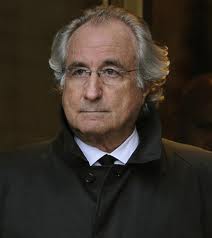- GOLD IRA
- Download Our 2024 Precious Metals IRA Investor’s Guide.
Click Here  Gold IRA
Gold IRA
 Investing
Investing
-
- CRYPTO IRA
- PRICES & STATS
- RETIREMENT PLANS
- BLOG
 Questions? Call (888) 820 1042
Questions? Call (888) 820 1042
Gold Trust (GLD) – Like Letting Criminals Watch Over Your Money
Disclosure: Our content does not constitute financial advice. Speak to your financial advisor. We may earn money from companies reviewed. Learn more
Last Updated on: 25th December 2020, 06:39 am
If you’ve invested in the SPDR Gold Trust (GLD), you should know that the banks behind it have been accused of some very unsavory things.
These banks are allegedly linked to some of the world’s most infamous criminals. To be clear, they’ve been accused though not indicted of a host of shocking allegations.

Instead, they have paid nearly $4 billion in fines to make the accusations go away.
In the financial world, the preferred outcome to lawsuits or criminal investigations is the payment of hefty fines –as long as you don’t have to admit what you did.
The two banks in charge of the oversight and administration of the Gold Trust (GLD) are HSBC bank (the Custodian), The BNY Mellon Bank (the Trustee).
HSBC, the custodian, is responsible for the safekeeping of the Trust’s gold bars transferred to it.
As custodian, HSBC also facilitates the transfer of gold in and out of the Trust through gold accounts it maintains.
The Trustee on the other hand, BNY Mellon Bank, is generally responsible for the day-to-day administration of the Trust.
This includes selling the Trust’s gold to pay Trust expenses, calculating NAV, receiving and processing orders with the Custodian, and monitoring the Custodian.
Since HSBC is the keeper of the gold, let’s look at their alleged improprieties first…
The Preferred Banker of Drug Dealers and Terrorists
After a decade-long probe by the U.S. Department of Justice, there was a mountain of evidence showing that HSBC was the banker of choice for Mexican and Columbian drug cartels, money launderers, and nations with connections to terrorist organizations like Hezballuh and Al Quaeda.
The Department of Justice called the misdeeds “stunning failures of oversight”, but stopped short in their quest to prosecute the giant bank giving birth to the notion of “too big to jail”.
Instead, the DOJ announced a settlement with HSBC in December, 2012, which included a $1.256 billion forfeiture and $665 million in civil fines.

HSBC's $1.92 billion payout was the largest U.S. penalty levied against a bank, topping a $780 million penalty imposed in 2009 against Swiss bank UBS AG for aiding tax evasion.
The size of the settlement seems justified.
A U.S. government report found that HSBC had exposed the American financial system to a wide array of money laundering, drug trafficking, and terrorist financing.
More HSBC Shenanigans
HSBC has also revealed that it expects to pay yet another settlement totaling up to $1.6 billion.
This litigation settlement with a US regulator deals with allegations that the banking giant misrepresented mortgage-backed bonds it sold, fueling the housing bubble.
Essentially, HSBC lied about the quality of the collateral backing the bonds they sold between 2005 and 2008.
The bank also omitted material information from the documentation investors relied upon to make their decisions.
As a result, investors in these mortgage-backed bonds did not realize the enormous risk of default.
Investors could only stand by and watch the subsequent collapse of these types of assets as the housing bubble burst.
And of course, HSBC said it would neither admit nor deny the allegations as part of a potential settlement.
Surely the Trustee of GLD, BNY Mellon Bank, can’t be as bad as HSBC.
Bernie Madoff’s Fundraiser
Many people have wondered how Bernie Madoff came to manage over $50 billion dollars.
In large part it was because he paid feeder funds hefty fees in order to raise money for his fund.
Feeder funds are simply funds that raise money but don’t actively manage it – they direct money to managed funds like Madoff’s.
It just so happens that one of Bernie Madoff’s feeder funds was a unit of BNY Mellon Corp., the Trustee for the Gold Trust (GLD).
In May, 2010, the New York Attorney General filed a lawsuit against BNY Mellon Corp. for securities fraud and breach of fiduciary duty.
Basically, BNY Mellon misled clients in order to convince them to invest with Madoff, so they could collect their fees from the Ponzi kingpin.
“After learning a series of disturbing facts about Madoff, defendants determined that no investment in Madoff was warranted,” stated the attorney general.
“But rather than disclose this determination to their clients, defendants hid the truth from their clients and misled them about Madoff.”
In November, 2012, BNY Mellon Corp. announced that it would pay $210 million to settle the suit.
We all know how it turned out for Madoff’s investors, the victims of the largest Ponzi scheme in the history of the world.
And so, both HSBC and BNY Mellon have a well-documented history lying, concealing the truth, and dealing with some of the world’s most notorious criminals.
Do you really want them watching your gold for you?
The Solution: Owning Physical Gold
If you want real, hold in your hand gold, look into opening a Physical Gold IRA. You can receive more information about the process by requesting the free gold investment kit below.



 Silver
Silver Gold
Gold Platinum
Platinum Palladium
Palladium Bitcoin
Bitcoin Ethereum
Ethereum

 Gold: $2,387.15
Gold: $2,387.15
 Silver: $27.92
Silver: $27.92
 Platinum: $931.67
Platinum: $931.67
 Palladium: $903.43
Palladium: $903.43
 Bitcoin: $67,909.13
Bitcoin: $67,909.13
 Ethereum: $3,254.68
Ethereum: $3,254.68